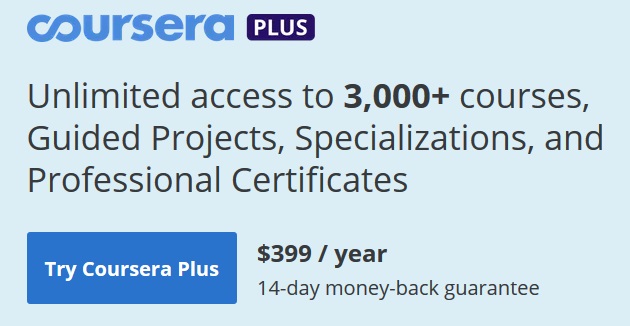There are quite a few online robotics courses for high school students that are perfect for people of all skill levels.
These online robotics courses combine video lessons with programming assignments in order to help students learn real-world skills in the field of robotics.
Some of these courses even offer certificates if you want to list the course on a college application, and you might even be able to apply the certificate towards college credit.
Whether you’re new to this topic, or if you already have experience building and programming robots, you’re sure to find a course in the following article that will help you level up your skills in the wide-ranging field of robotics.
Online Robotics Courses for High School
| Image | Name | Rating | Shop |
|---|---|---|---|
| | Coursera Robotics Specialization | ||
 | Programing for Robotics | ||
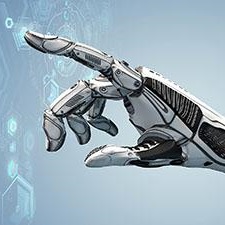 | edX Robotics Columbia University | ||
| | Coursera Modern Robotics | ||
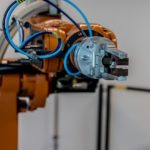 | Udacity Robotics Engineer Program |
Online Robotics Courses for High School
Coursera Robotics Specialization
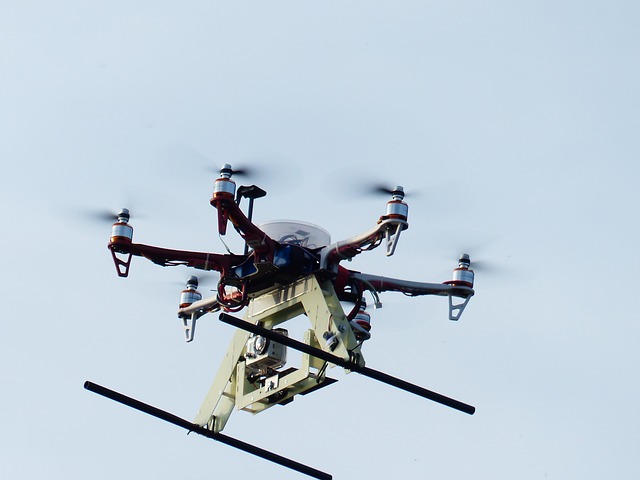
Coursera Robotics Specialization (Free Trial) will introduce you to the main concepts of robotics with a focus on aerial control and mechanics.
This Robotics Specialization is made up of video lectures presented by some of the leading professors in the robotics department at the University of Pennsylvania.
There are also weekly assignments where you can get some real-world experience programming robotics simulations using the Matlab programming environment.
This specialization is made up of six courses that we’ll go over in more detail below, and you can expect that each course in the series will take approximately 15 to 30 hours to complete.
Aerial Robotics
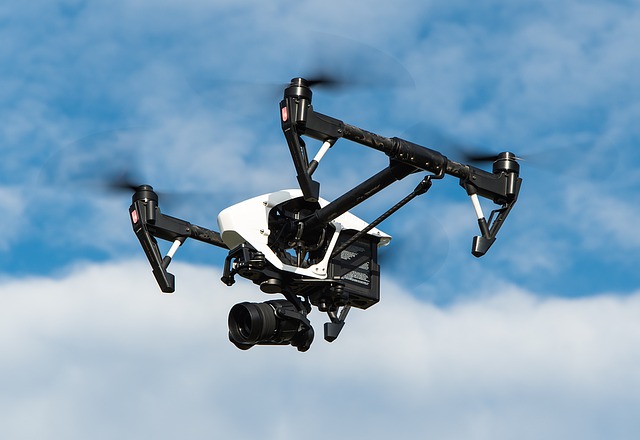
The first course in this specialization is Aerial Robotics (Free Trial) where you’ll learn how to operate and control small drones in indoor and outdoor environments. The first part of this course will go over the basic geometry and mechanics of micro air vehicles.
Later in this course, you’ll learn how to control a quadrotor drone in a 2D environment using linear control models and motion planning. The final week of the course will start to delve into the advanced topics you’ll need to know to complete the rest of the specialization.
Computational Motion Planning
Computational Motion Planning (Free Trial) will address how a robot decides to achieve its goals in a messy real-world environment. You’ll be introduced to graph-based planning models, randomized planners, and artificial potential fields. By the end of this course, you’ll have a better understanding of how a robot moves through space and makes decisions using simple yet elegant algorithms.
Mobility
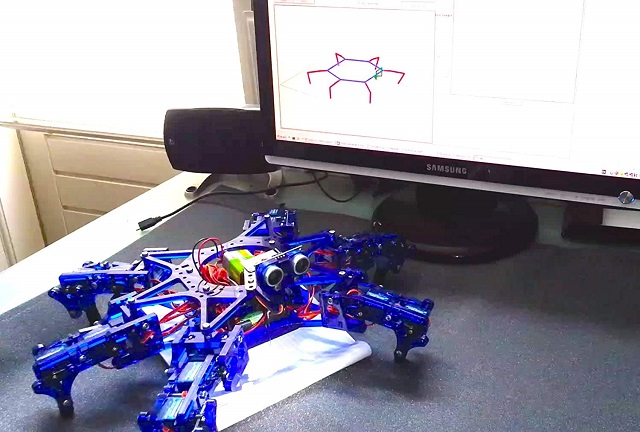
In the Mobility (Free Trial) section of the robotics specialization, you’ll learn how robots use sensors and motors to move through their environment.
There will also be extensive coverage of legged robots and their mechanical properties. Finally, this course will go over some more advanced concepts like joint positions and forward kinematics.
Perception
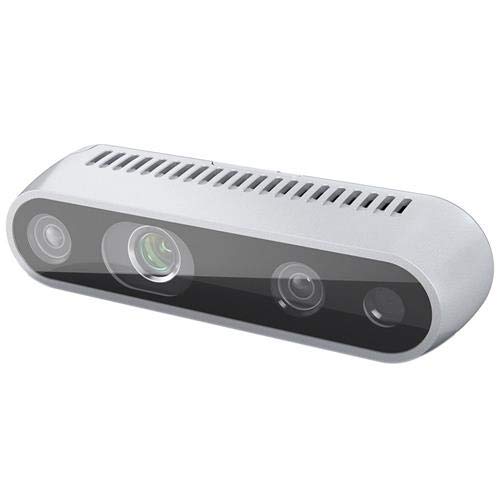
In the fourth course, you’ll learn more about Perception (Free Trial). This course will explore how robots see and sense their world visually using cameras.
You’ll learn about the geometry of images and how to calculate projection transformations.
Then in the latter parts of this course, you’ll take that knowledge and apply it by calculating pose estimations from still images and videos.
Estimation Learning
The final full course in this specialization is Estimation Learning (Free Trial). In this course, you’ll learn how a robot can deal with noisy sensor readings in complex environments.
Each week you’ll learn an advanced statistical technique that can be applied to a mapping and localization problem.
Capstone
The Capstone project will let you apply what you learned in the previous five courses to a robotics programming challenge. You have the choice of completing the project using a simulator or a real robot
If you choose the simulation track you’ll need to calculate the complex dynamics involved in stabilizing an inverted pendulum. To do this you’ll need to draw from the lessons you learned in the mobility, aerial robotics, and estimation lessons.
The hardware track will require that you purchase and assemble a rover, and then you will need to program it to complete a set of navigation tasks in a real-world environment.
edX Robotics – Columbia University – Online Robotics Courses for High School
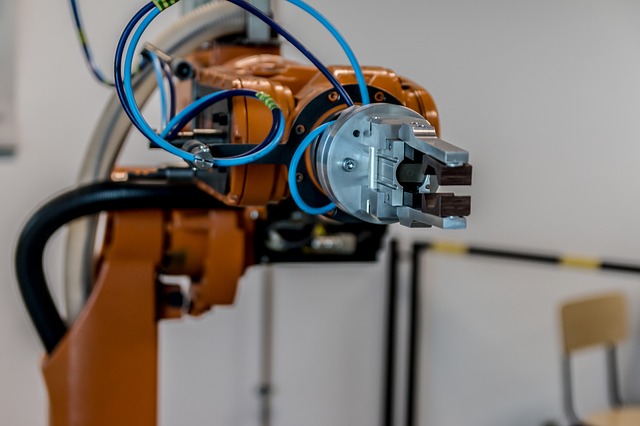
The Colombia University Robotics Course (View Course) is one of the best robotics courses if you’re interested in robot arms and kinematics.
This course is made up of 12 weeks of work, and you can expect to spend 8 to 10 hours each week watching lectures and doing assignments.
This course covers the core concepts you need to understand to control a robot arm using a mix of video lectures and programming assignments.
One of the best things about this course is how the instructor Matei Ciocarlie masterfully presents each video lecture.
Professor Ciocarlie presents each lesson in a clear and concise manner, and he makes it easy for people of all skill levels to understand each one of the high-level mathamatical and mechanical concepts.
You will need to have a good working knowledge of Python (Free Course Online) to complete the assignments, and you’ll also be introduced to ROS (Robotic Operating System) early on in the first week of lectures.
With this knowledge, you’ll be able to do all the assignments and take advantage of ROS and the Gazebo to simulate and program a KUKA robot arm in a full 3D environment.
Overall this is one of the best courses for people who plan on going into industrial robotics. It covers all the core topics you’ll need to get started in the field, and you’ll get exposure to ROS (Robotic Operating System), which is an open-source platform making huge inroads into a number of markets.
Coursera Modern Robotics: Mechanics, Planning, and Control Specialization – Northwestern
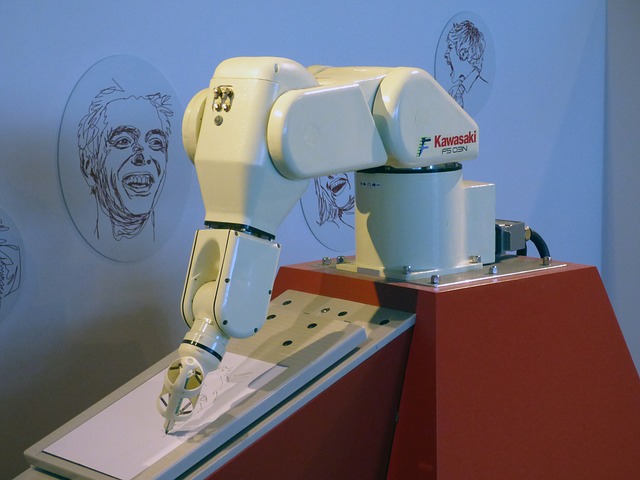
The Coursera Modern Robotics Specialization (Free Trial) will give you a complete understanding of control, dynamics, and the motion of rigid bodies. This specialization is made up of 5 courses that all build up to a challenging capstone project.
In the first two courses, you will learn about motion and kinematics. The first course will go over configuration spaces and spatial relations. You’ll also be able to program your own simulations using Matlab, Python, or V-REP.
Then once you have a basic understanding of spatial relations and coordinate systems you’ll move on to kinematics, dynamics, and motion planning. Here you’ll learn how to make different robot platforms move around and navigate their environment.
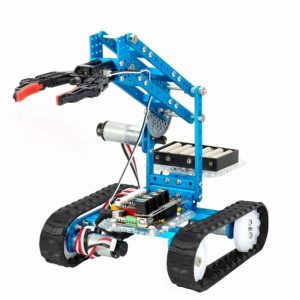
This will be followed by a more complete course in manipulation and wheeled robotics. In this course, you’ll learn how to control a mobile platform with a robot arm to pick up and manipulate objects in a real or simulated environment.
The final capstone project will let you take everything you learned in the first part of the specialization and apply it to a more complex task. In the capstone project, you’ll have to program a simulated KUKA youBot to perform a pick and place task, which will allow you to demonstrate your understanding of motion control, planning, and advanced kinematics.
EdX Robotics MicroMasters

The edX Robotics MicroMasters (View Course) is comprised of four individual courses that cover a wide range of robotics concepts. Each course runs for about 12 weeks, and you can expect to spend at least 8 to 10 hours each week watching lectures and completing assignments.
The first course covers the mathematical foundations you’ll need to understand in order to program real-world robotics systems. You’ll also get introduced to programming in Matlab, and you’ll even get a free Matlab students license while you are enrolled in the MicroMasters program.
In the second course, you’ll learn about vision and machine learning. With this knowledge, you’ll be able to program robots to avoid obstacles and learn from their environment.
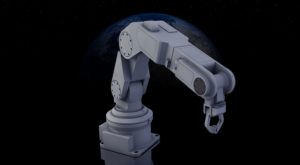
The third course will go deeper into dynamics and control and real-time planning. You’ll learn more about the dynamics of robot arms, wheeled robots, and quadrotors. Then you’ll need to program each robot in the Matlab simulator to demonstrate your understanding of the concepts presented in each of the lectures.
Finally, the locomotion course will go over more advanced legged robots. In this course, you’ll learn more about dynamic stability, and controlling inverted pendulums. This will all culminate in a final project where you write a controller for the underactuated Jerboa robot.
High School Robotics Kits
| Image | Name | Rating | Shop |
|---|---|---|---|
 | Tracked Robot Smart Car Platform |
Table of Contents


